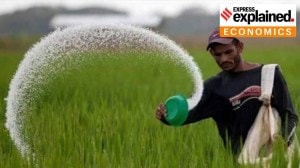From strengthening the National Cyber Crime Reporting Portal (NCRP), closely monitoring when dormant accounts become operational, to taking stock of the illegal loan app fiasco, the meeting will cover a wide range of issues facing India’s financial ecosystem currently. The meeting will be chaired by Financial Services Secretary Vivek Joshi.

Among those invited are the RBI Governor’s nominee; TRAI Chairperson; Secretary in Department of Economic Affairs (DEA); Revenue Secretary; Telecom Secretary; IT Secretary; the Chairman of Unique Identification Authority of India (UIDAI); and the CEO of National Payments Corporation of India (NPCI), among others. Apart from chief executives of all banks, representatives from Google Pay and Razorpay are also invited to join.
Story continues below this ad
During the meeting the Indian Cyber Crime Coordination Centre (I4C), under the Home Ministry, will make a presentation on the latest statistics of digital payment frauds as reported in the NCRP, including challenges and issues faced in countering such issues.
One of the pitches the Home Ministry is expected to make is to add bankers to the team of people who handle cybersecurity related calls made to the NCRP.
“Mostly it is the police who manage the calls. At some places, bankers are also sitting along with them. If any complaint comes in, then the bank person knows the system, whom to call and stop the fraud transaction. But that capacity should be expanded much more,” an official privy to the agenda of the meeting said.
A source also said that the issue of predatory lending apps being widely advertised on social media platforms, as pointed out by The Indian Express in an investigation published last week, will also be taken up with the companies. This paper had reported that with neither the government nor regulators looking over their shoulders, fraudsters are abusing a confluence of the most popular online platforms — Meta, Google and Apple app stores, and WhatsApp — to advertise and distribute their dubious apps and eventually harass users for payments. Dubious loan apps advertise on Instagram and Facebook, and despite whatever filters they claim to use, many such apps including those clearly red-flagged by the government itself continue to operate.
Story continues below this ad
Kolkata-based UCO Bank had reported the credit of Rs 820 crore to account holders of the bank via IMPS earlier this month. The bank in a statement said that due to technical issues in IMPS during November 10-13, certain transactions initiated by account holders of other banks had resulted in credit to the account holders in UCO Bank without actual receipt of money from these banks. The case has now been referred to the Central Bureau of Investigation (CBI).
The meeting will also discuss how the banking system should monitor accounts that have remained unused for a while and suddenly become active, since that is a common way fraudsters abuse such accounts to gather proceeds from their activities. “If a bank account is not getting used and then someone else buys it out, then one can receive money in that account. So, we are thinking that if there was a transaction of say Rs 1,000 last year, and suddenly it starts to show a transaction of Rs 15,000, that bank account should get flagged in some way,” the official said.
“One cannot stop the money from coming, but the user can be asked to redo the KYC process for accessing the account. Some limits can be put for it. Maybe Rs 2,000 can be allowed to be withdrawn but for the rest of the money, the KYC will have to be redone,” they added.
The Centre is also considering a plan to impose a time delay, and an amount limit, for first time digital transactions between two people in order to curb rising instances of payment fraud in the country, The Indian Express has learnt. The current consideration includes introducing a four-hour window to process the first transaction between two parties for payments over Rs 2,000. While the process is expected to add friction in digital payments, government officials believe it is necessary to mitigate cybersecurity concerns.

































